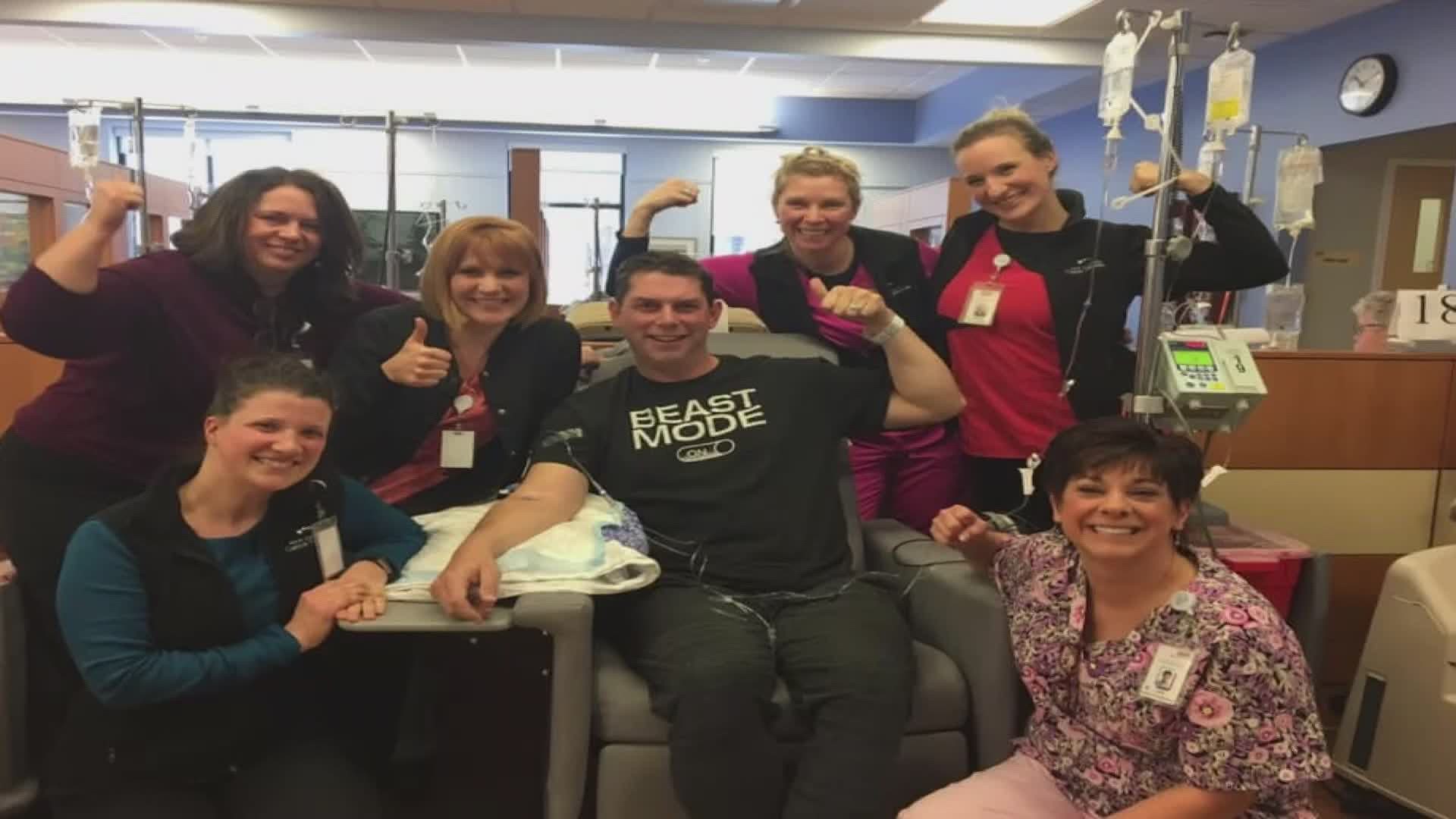CAPE ELIZABETH, Maine — It's a treatment that improves how your immune system finds and destroys cancer cells. These drugs are called 'immunotherapy' and they offer hope for nearly untreatable cancers.
But a number of cancer patients may not be aware that more clinical trials are becoming available, even during the pandemic.
Trevor Maxwell has been able to outlive a terminal cancer diagnosis, thanks to a treatment that boosts the body's natural defenses to fight cancer.
"I wouldn't be alive right now without immunotherapy," Maxwell says.
The father of two founded an online community, Man Up to Cancer after being diagnosed with stage 4 colorectal cancer nearly three years ago. A genetic condition made him a good candidate for the treatment, which he started 16 months ago.
Immunotherapy kept the disease stable, but recently tumors in his abdomen started growing. Last week, he started a new clinical trial at Johns Hopkins Medical Center, documenting his journey on social media.
The monthly infusions are two different checkpoint inhibitors, which release a natural brake on your immune system so that immune cells known as T cells recognize and attack tumors.
"It's been a game-changer for those patients," Dr. Matt Dugan says.
Dugan is a medical oncologist who practices at New England Cancer Specialists. While only a small percentage of colorectal cancer patients are considered good candidates for immunotherapy, the benefits can last for months or even years.
He says if colon cancer is detected and treated at its earliest stage, the five-year survival rate is 90 percent.
The American Cancer Society recommends people without any risk factors get their first colonoscopy at age 45.
Patients should also not ignore symptoms including stomach pain, cramps, and rectal bleeding. Trevor, meanwhile, will undergo a scan in a few months to see if the treatment is working. He says patients can research hundreds of promising cancer immunotherapy trials.
To find out what immunotherapy is available in clinical trials for early-stage cancers or as a first-line treatment option, click here.
Information about colorectal cancer and screening is available at the U.S. Centers for Disease Control and Prevention.
More information about immunotherapy is available at the American Cancer Society.

